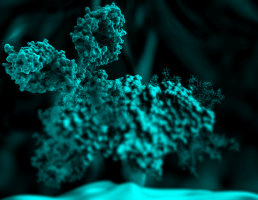
Antibody-drug conjugates take the advantage of antigen specificity of monoclonal antibodies to deliver highly potent cytotoxic drugs selectively to antigen-expressing tumour cells.
The recent approval of Adcetris and Kadcyla as well as emerging data from numerous ongoing clinical trials underscore the role of antibody-drug conjugates (ADCs) as a new therapeutic option for cancer patients.
The site-specific conjugation technologies to develop next-generation ADCs have grown rapidly since then and have proven to be robust platform for generating next-generation homogeneous ADCs.
These homogeneous ADCs have exhibited superior properties in terms of stability, manufacturing, and therapeutic index over the conventional ADCs.
Although most ADCs currently in clinical development rely on conventional conjugation chemistries, the first wave of site-specific ADCs has been promoted to clinical trials.
The increased understanding from the clinical investigation of current ADCs and site-specific bio-conjugation technologies has enabled scientists to accelerate the discovery and development of the next generation ADCs with defined and homogeneous compositions.
Ongoing efforts to improve conjugation technologies and understanding of structure-activity relationship will certainly broaden the role of ADCs and other conjugates for the treatment of cancer and potentially other immuno-mediated diseases.
Source: Bentham Science Publishers
We are an independent charity and are not backed by a large company or society. We raise every penny ourselves to improve the standards of cancer care through education. You can help us continue our work to address inequalities in cancer care by making a donation.
Any donation, however small, contributes directly towards the costs of creating and sharing free oncology education.
Together we can get better outcomes for patients by tackling global inequalities in access to the results of cancer research.
Thank you for your support.